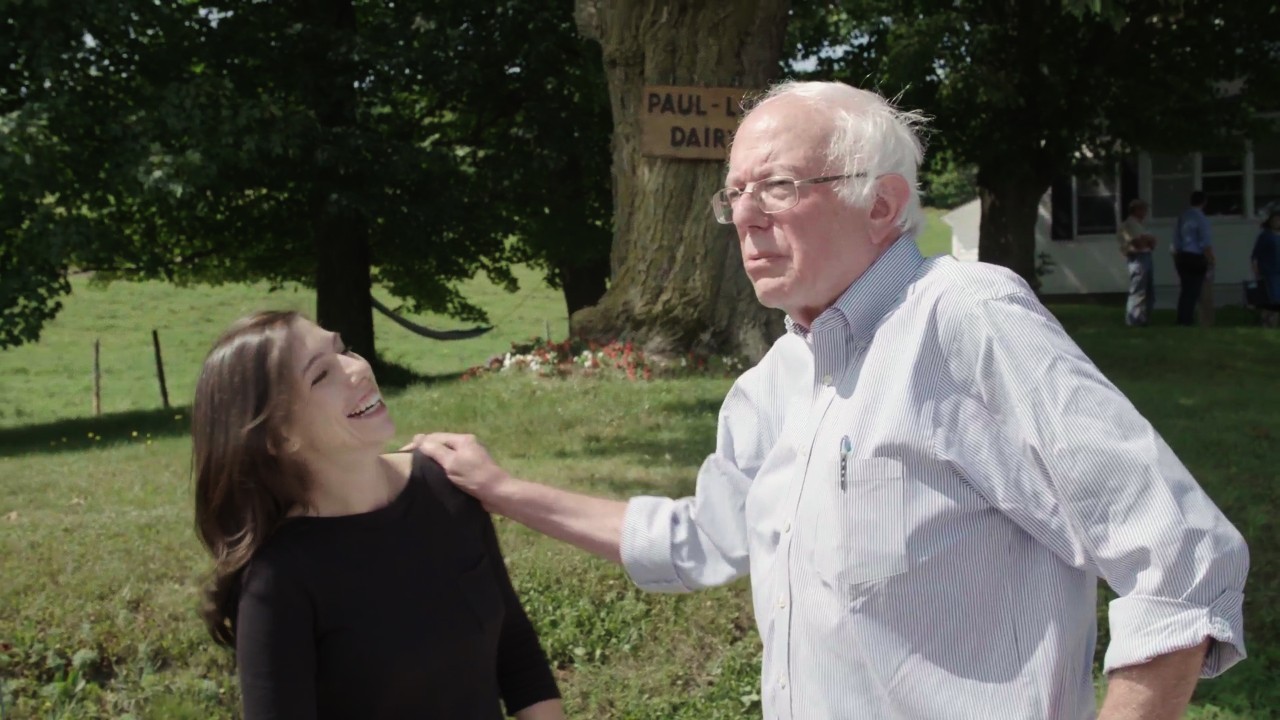Bernie Sanders may not love how the media covers him, but he wants to save it anyway. His plan involves blocking future media mergers and a possible tax on Silicon Valley to support newsrooms.The proposal, rolled out in the Columbia Journalism Review on Monday, comes as Sanders and the Washington press corps are at each other’s throats. Campaign aides have lambasted reporters for what they see as selective coverage of polling data and unfair treatment of policy proposals like Medicare for All. Political journalists also cried foul after the senator suggested earlier this month that Jeff Bezos’ ownership of The Washington Post influenced its coverage of his campaign.On Monday, the Democratic hopeful echoed long-standing left-wing complaints of a rapidly consolidating industry, separating “real journalism” from “the gossip, punditry, and clickbait that dominates today’s news.” He warned of the hollowing-out of local outlets and laid blame for the perverse pressures now reshaping media at the feet of Wall Street, Silicon Valley, and President Donald Trump.“One reason we do not have enough real journalism in America right now is because many outlets are being gutted by the same forces of greed that are pillaging our economy,” Sanders wrote.READ: How Bernie Sanders won over young, Native American voters“At precisely the moment when we need more reporters covering the healthcare crisis, the climate emergency, and economic inequality,” he continued, “we have television pundits paid tens of millions of dollars to pontificate about frivolous political gossip, as local news outlets are eviscerated.”The campaign has recently tried to make its case directly to supporters through non-traditional or in-house media. Sanders expounded on the made-for-cable format of the Democratic primary debates on a recent episode of the uber-popular Joe Rogan podcast. In the first edition of an email newsletter for supporters, Bern Notice, speechwriter David Sirota laid out a detailed critique of corporate media ownership structures.Many media analysts have shared similar warnings in recent years. The local newspaper industry has faced rolling cutbacks for the past decade and mega-mergers have given a small handful of companies, like the proposed Gannett-Gatehouse newspaper empire, outsized power.Such moves were largely made out of desperation in an industry facing decline — a last ditch effort to hold the line as Facebook and Google gobbled up a growing share of ad money. Facebook and Google now gobble up the vast majority of the ad money that long supported newsrooms.Sanders’ proposals would seek to reverse these trends by walking back deregulation by Trump and his predecessors. His administration would impose an immediate moratorium on mergers and reinstitute old FCC rules to limit a company’s ability to own newspapers and TV stations in the same markets.It would also “consider” taxing the targeted ads that have allowed Silicon Valley to dominate, and then “using the revenue to fund nonprofit civic-minded media.”“Their monopoly power has particularly harmed small, independent news outlets that do not have the corporate infrastructure to fight back,” Sanders wrote of tech giants.That thinking shone through again in Sanders’ proposal on Monday. But it’s unclear how much impact such measures would have after the industry has spent a decade-plus careening from one crisis to the next.READ: Joe Biden has a fortress in the SouthMany of the expected mega-mergers have already happened in response to the pressures. Local news is disappearing in many parts of the country. Digital media is fragmenting far beyond any point in modern history. Another recession could be on the horizon.“Reading this from Bernie Sanders it becomes pretty clear that there's not much any president could do to solve the business crisis of the press,” tweeted Richard Tofel, president of the nonprofit investigative outlet ProPublica. “A good bit that makes sense in the diagnosis; very little that would matter in the prescription.” Cover: U.S. Democratic Presidential hopeful US Senator for Vermont Bernie Sanders speaks on-stage during the Democratic National Committee's summer meeting in San Francisco, California on August 23, 2019. (Photo: JOSH EDELSON/AFP/Getty Images)
Cover: U.S. Democratic Presidential hopeful US Senator for Vermont Bernie Sanders speaks on-stage during the Democratic National Committee's summer meeting in San Francisco, California on August 23, 2019. (Photo: JOSH EDELSON/AFP/Getty Images)
Advertisement
Advertisement
